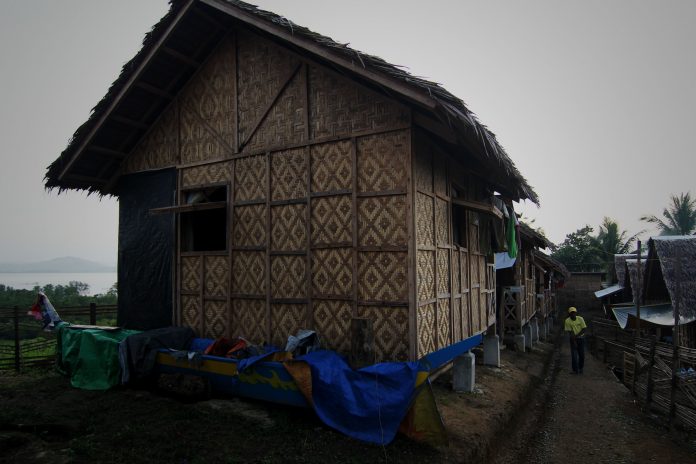Every now and then I feel like I hear Joseph speaking in Jesus in the Gospels. I mean Joseph, his father. Like, in our Gospel today, I hear in Jesus’ words some lessons he must have learned from his father Joseph, the carpenter.
Back in those days, they did not yet make a distinction between carpenters and masons, engineers and architects. A house-builder had to be “all around”—meaning, knowledgeable in everything about construction, whether it be about wood or stone.
Both our readings today are using metaphors drawn from construction work. The Gospel distinguishes between two types of hearers of the Word of God, comparing them to wise and foolish house-builders.
Our first reading from Isaiah describes the faith of Judah, using the analogy of a well-built city that is reinforced with walls and ramparts, one that stands on the foundation of an eternal rock, who is no other than the Lord.
In both instances, construction is just used as a metaphor for the making of the character of an individual or a nation.
The ancient Romans were supposedly the first to articulate the three basic principles of good architecture. They are UTILITAS, meaning, functionality; VENUSTAS, meaning, beauty; and FIRMITAS, meaning, STABILITY.
When you build a structure, for it to have the qualities of good architecture, you’re supposed to look after these three things: One, is the structure useful or functional to the people who use it? Two, is it attractive and welcoming? Thirdly, is it strong enough to be able to withstand the tests of time, especially natural calamities like earthquakes, typhoons, floods, and volcanic eruptions?
I realize that the same principles somehow also apply in the task of building or forming individual or collective human character. You also make sure they are functional, beautiful and strong.
And I think Jesus also consciously followed the same principles in building his Church. Look, we’re 2,000 years old and we have outlasted empires, kingdoms, and dynasties! Jesus must have built his Church to last until his second coming.
Remember what he said to Peter? “You are Peter; on this rock I will build my Church.” He also chose a good combination of characters among his first apostles, on the foundation of whose witnessing the Church has stood up to now. He entrusted to them his Word and assured them, “Heaven and earth will pass away, but my words will never pass away.”
The one common thing that the apostles possessed was a solid relationship, a committed friendship with the founder, Jesus whom they proclaimed as Lord and Savior.
When you visit churches, cathedrals and basilicas anywhere around the world, take time to notice some details. The tour guides will sometimes call your attention to some historically relevant religious art works, like paintings, stained glass, wood carvings, sculptures, details that have recorded the memories of wars, plagues, and natural disasters that the community of believers have been through.
We will look back, for instance at year 2020, as the year when the whole world had to deal with a pandemic that claimed many lives, interrupted many human activities, prevented seniors from being able to attend Mass physically and forced them to learn to follow religious services through digital technology.
These memories will be immortalized not just by photos and videos, but also by works of art, including liturgical music. They will reflect in the financial reports of parishes and dioceses, in the revised pastoral plans, in the minutes of virtual meetings held by zoom. Future generations will read history and look back at how 2020 had changed a lot of things even about our ways of life, our world views, our pastoral and theological approaches.
Remember, Jesus said, “on this rock, I WILL BUILD MY CHURCH.” This is a good reminder to all of us, members of the Church. Once in a while, crisis situations like the one we are presently going through cannot but affirm what is written in Psalm 127: “If the Lord does not build the house, then in vain do the builders labor.”
Homily of Bishop Pablo Virgilio David for Dec. 3, 2020, Thursday of the 1st Week of Advent, Mt.7:21,24-27









